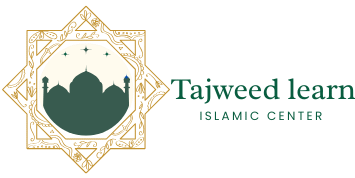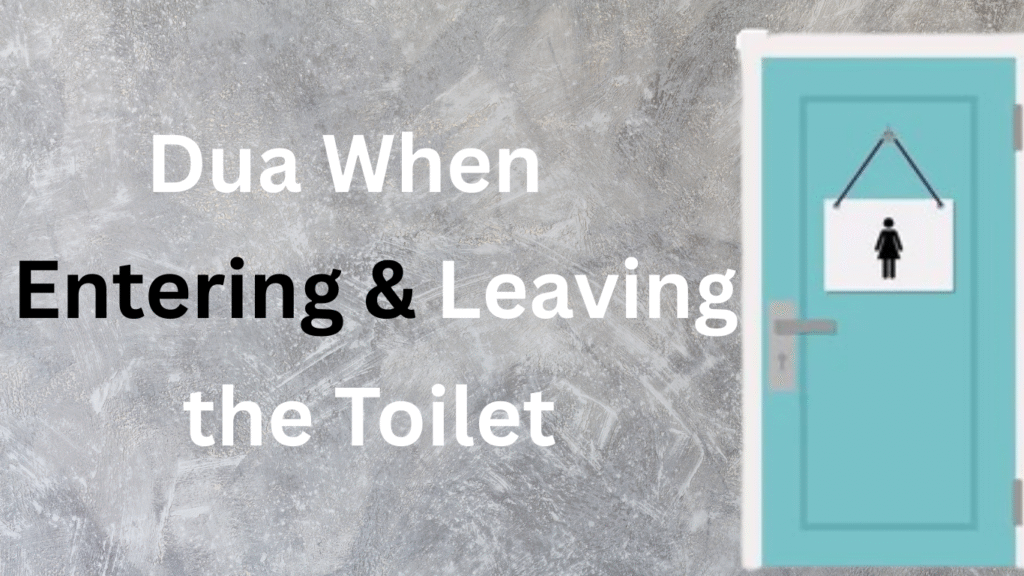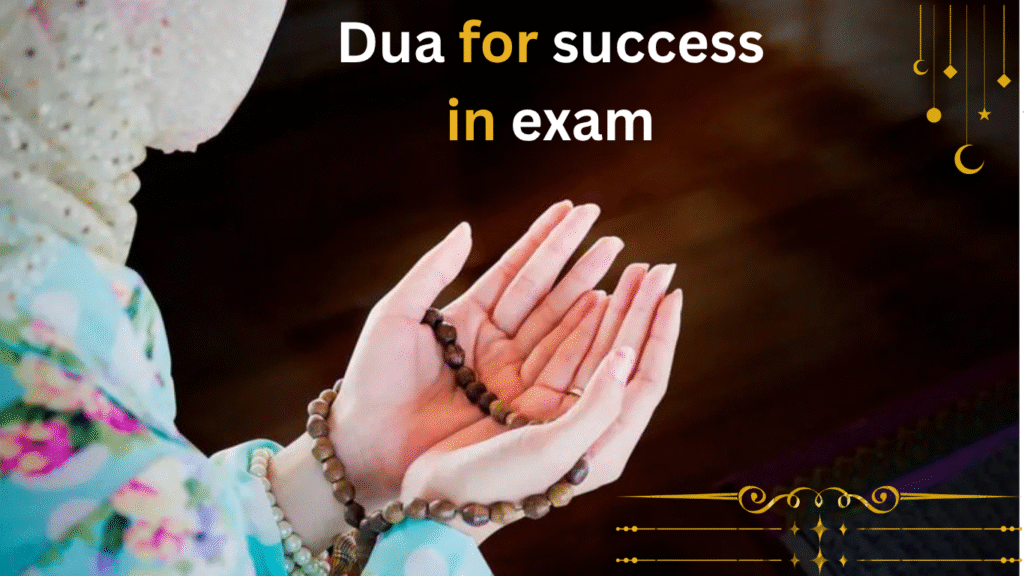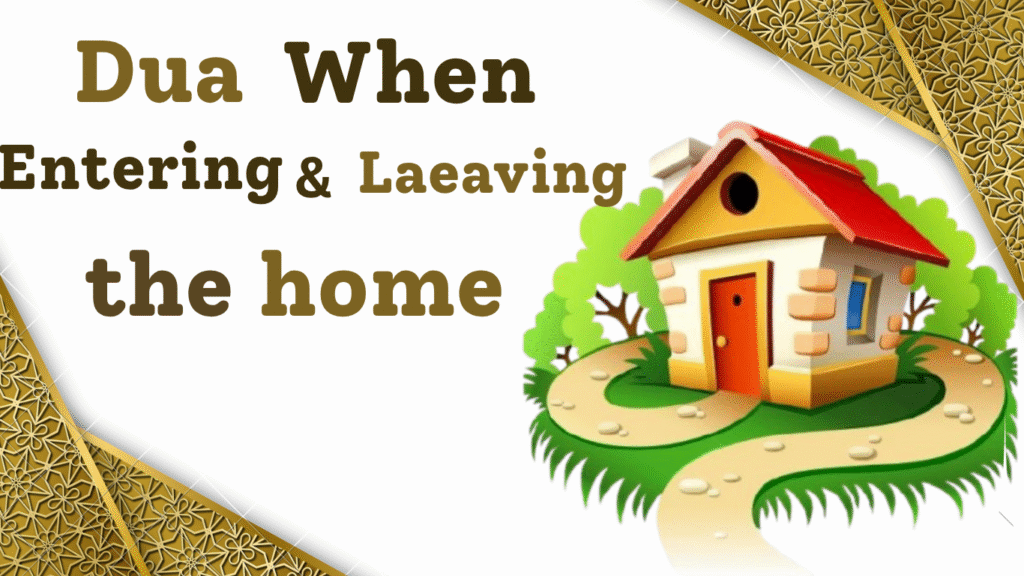Islam gives us a complete blueprint for how to live with cleanliness, even when using the toilet. Our Prophet ﷺ taught specific duas to read at these times, seeking Allah Ta’aala’s protection from Shayateen in such areas of filth. This simple daily task helps us stay clean, both physically and ritually, as part of our faith.
From Hadith in Sahih Muslim, we learn Cleanliness is half of faith, and prayer is a light. I’ve made it a habit to read the dua before I enter and after I leave the bathroom, asking Allah for help and protection from shitan. This routine, rooted in Islamic etiquette, keeps us spiritually aware while handling even personal nature.
Since we use the bathroom multiple times a day, it’s essential to seek Allah Ta’aala’s protection from the Shayateen by reciting the prescribed dua.
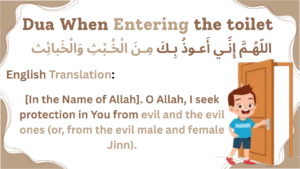
1.Dua when entering the toilet
(بِسْمِ الله) اللّهُـمَّ إِنِّـي أَعـوذُ بِـكَ مِـنَ الْخُـبْثِ وَالْخَبائِث
Transliteration:
Translation In English:
Translation In Urdu
The dua when entering the toilet begins with Bismillah, asking Allah for protection from all kinds of evil, including harmful jinn. The Prophet ﷺ taught this supplication to keep us safe from Shayateen, as toilets are considered impure places where such beings may be present. Saying this dua creates a spiritual barrier and reminds us to stay mindful of Allah even during private moments.
2.Dua when leaving the toilet
غُفْرَانَكَ الْحَمْدُ لِلَّهِ الَّذِي أَذْهَبَ عَنِّي الْأَذٰى وَعَافَانِي
Transliteration:
Translation In English:

Translation In Urdu:
Reciting this dua before entering the toilet brings Allah Ta’aala’s protection from the evil Shayateen who may try to watch us while we relieve ourselves.
According to a Hadith, saying Bismillah before entering or changing clothes acts as a shield, preventing the Shayateen from seeing our private parts.
Toilet Etiquette In Islam According To Hadith:
Importance of Cleanliness and Duas
Islam teaches us not only how to pray but also how to maintain etiquette in daily actions — even in the bathroom. There are many hadith from the Prophet ﷺ that guide us on how to use the toilet with dignity and cleanliness. These teachings come with specific duas, rules, and practices rooted in wisdom and modesty.
Using the Left Hand for Cleaning
The Messenger of Allah ﷺ warned us not to touch private parts or clean them with the right hand. In a hadith from Sahih al-Bukhari, he also advised not to breathe into the drinking utensil while drinking water. Cleanliness and manners are linked in Islam, even in the lavatory.
Proper Cleansing After Relief
The Prophet ﷺ instructed us to clean thoroughly after urinating, avoiding impurity. A report by Ibn Maajah and found in Saheeh al-Jaami highlights how being careless in cleaning after answering the call of nature is strongly discouraged. This helps maintain both hygiene and spiritual purity.
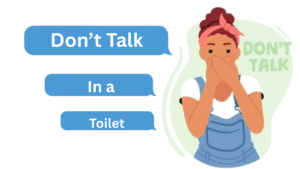
Avoiding Speech While Relieving Oneself
In a narration by Jabir bin `Abdullah, a man once greeted the Prophet ﷺ with Salam while he was urinating, but the Prophet ﷺ did not respond. This Grade Hasan hadith from Darussalam shows that it’s best to stay silent and focused in such moments.
Acts of Fitrah and Respect for Qibla
According to Aisha, Ummul Mu’minin, the Messenger of Allah ﷺ taught that using water after easing oneself is part of the natural acts of fitrah. Other practices include clipping the moustache, growing the beard, plucking hair, washing the finger joints, and cleansing the nose (Al-Istinshaq). Also, as reported by Abu Aiyub Al-Ansari, one should not face or turn their back to the Qibla, but face the east or west.
